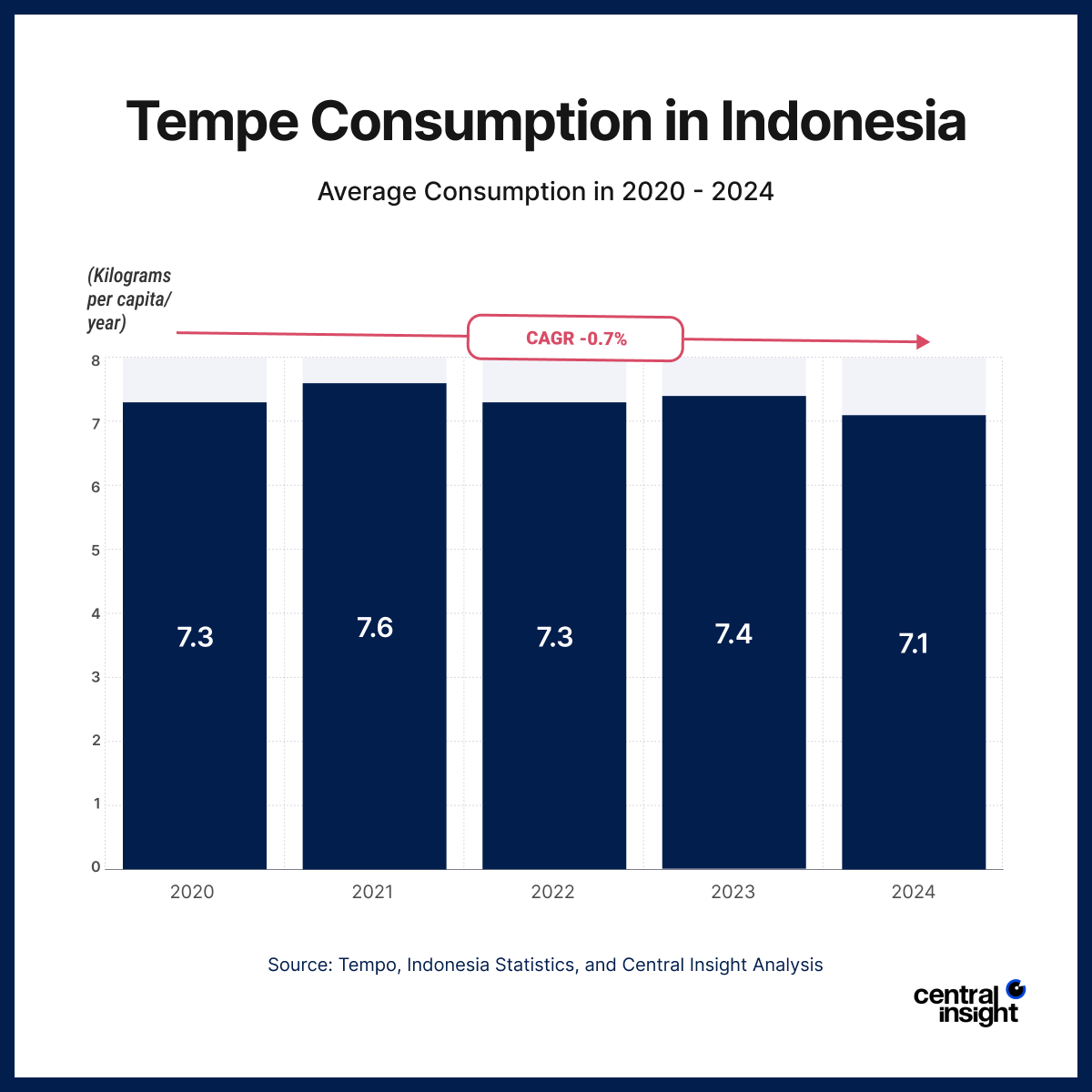Tempeh (or tempe) has long been a familiar presence in Indonesian households. This food item is typically served as a side-dish alongside rice, often fried and popular in everyday meals. Yet today, this humble fermented soybean staple is undergoing a transformation: tempeh is increasingly migrating from traditional plates to snack aisles and convenience stores.

Innovative Tempeh Chips and Desserts
Over the past few years, manufacturers and food entrepreneurs have introduced a diverse range of ready-to-eat tempeh products, such as tempeh chips, sticks, burgers, and even tempeh-based desserts and tempe flour. These formats cater to younger, urban consumers looking for portable, healthy snack options. Tempeh chips, in particular, have gained traction. Crunchy, savory, and rich in protein, they offer a guilt-free indulgence that aligns with rising interest in plant-based foods.
Online communities and reviewers frequently discuss these products. A Reddit user based in Malaysia, for instance, praised a brand of tempeh chips imported from Indonesia, highlighting their taste while noting a premium price of around IDR 80,000 per pack. This reflects the novelty and artisanal nature of these snacks. Despite higher unit prices compared to fresh tempeh, these new formats tap into a growing market niche where consumers are willing to pay for convenience and novelty.
Read Also: The Shocking Impact of Food Waste in Indonesia: Billions Lost Each Year
This trend aligns with broader shifts in Indonesian diets: increasing investment in healthy, vegetarian-oriented, and functional foods, particularly among urban millennials. A cornucopia of plant-based innovations, from meat substitutes to fermented snacks, is emerging. Tempeh, recognized for its high-quality protein, fermented nutrients, and rich flavor profile, is naturally central to this ecosystem. Product diversification offers businesses an opportunity to increase tempeh’s visibility beyond traditional meal consumption.








